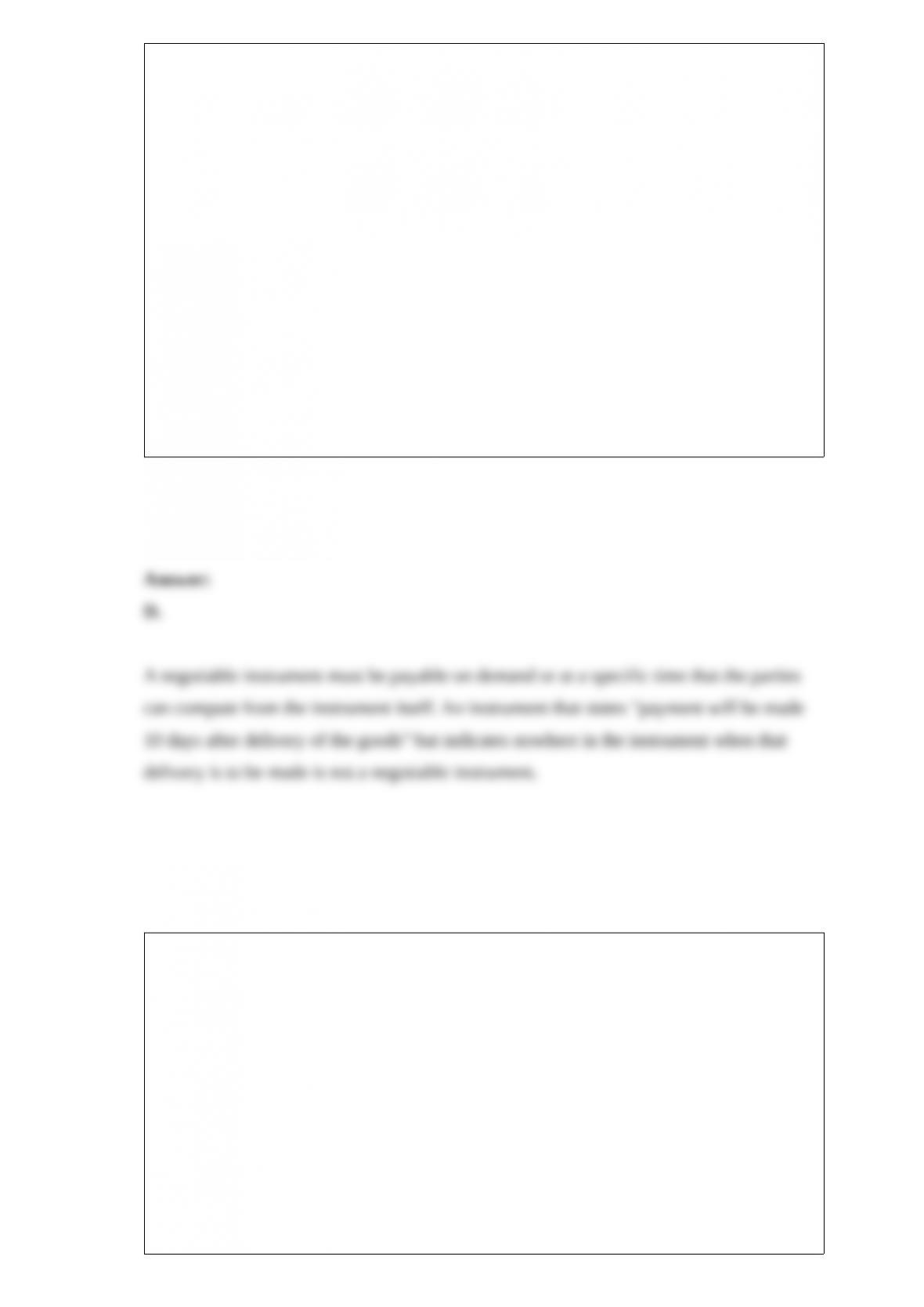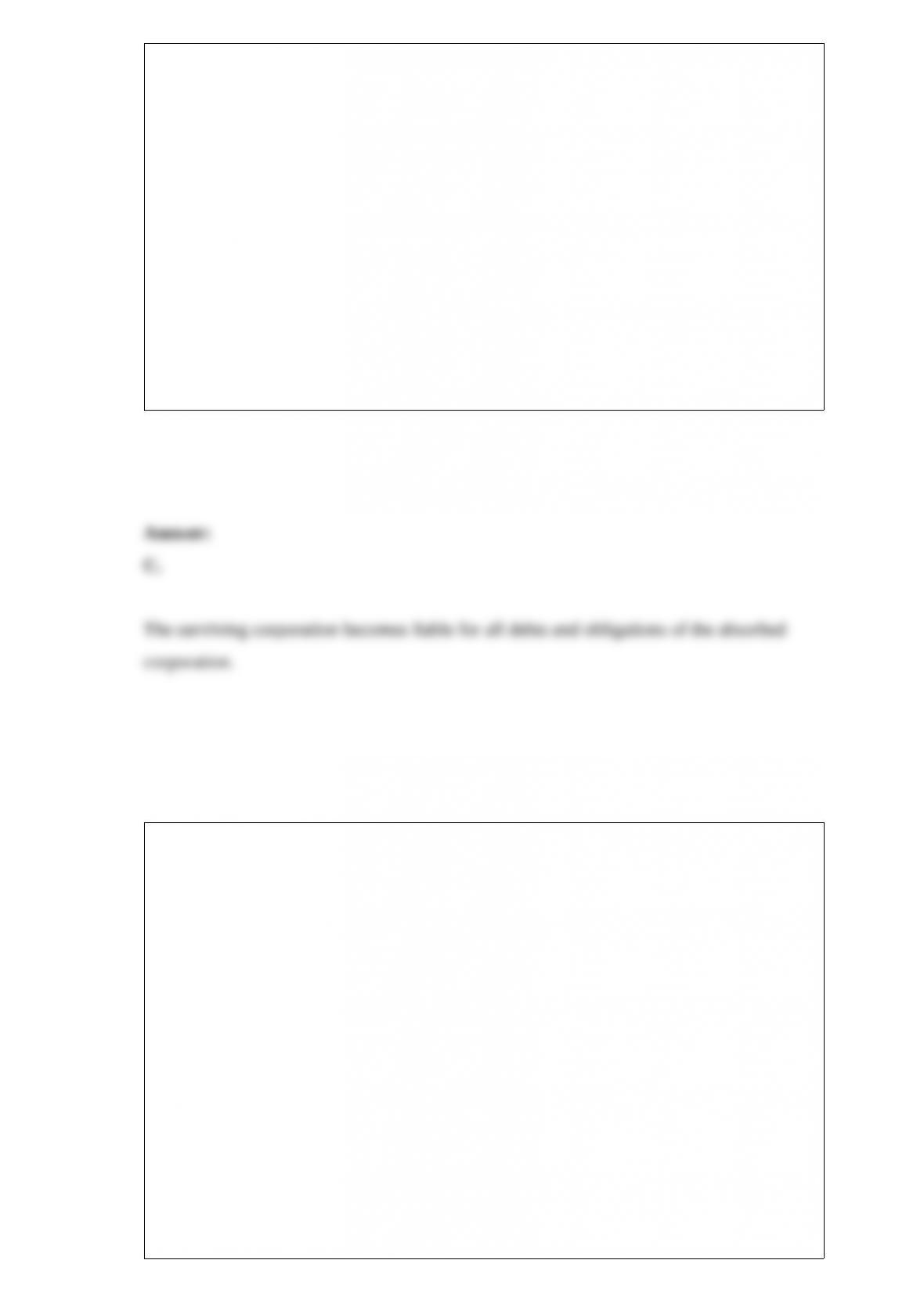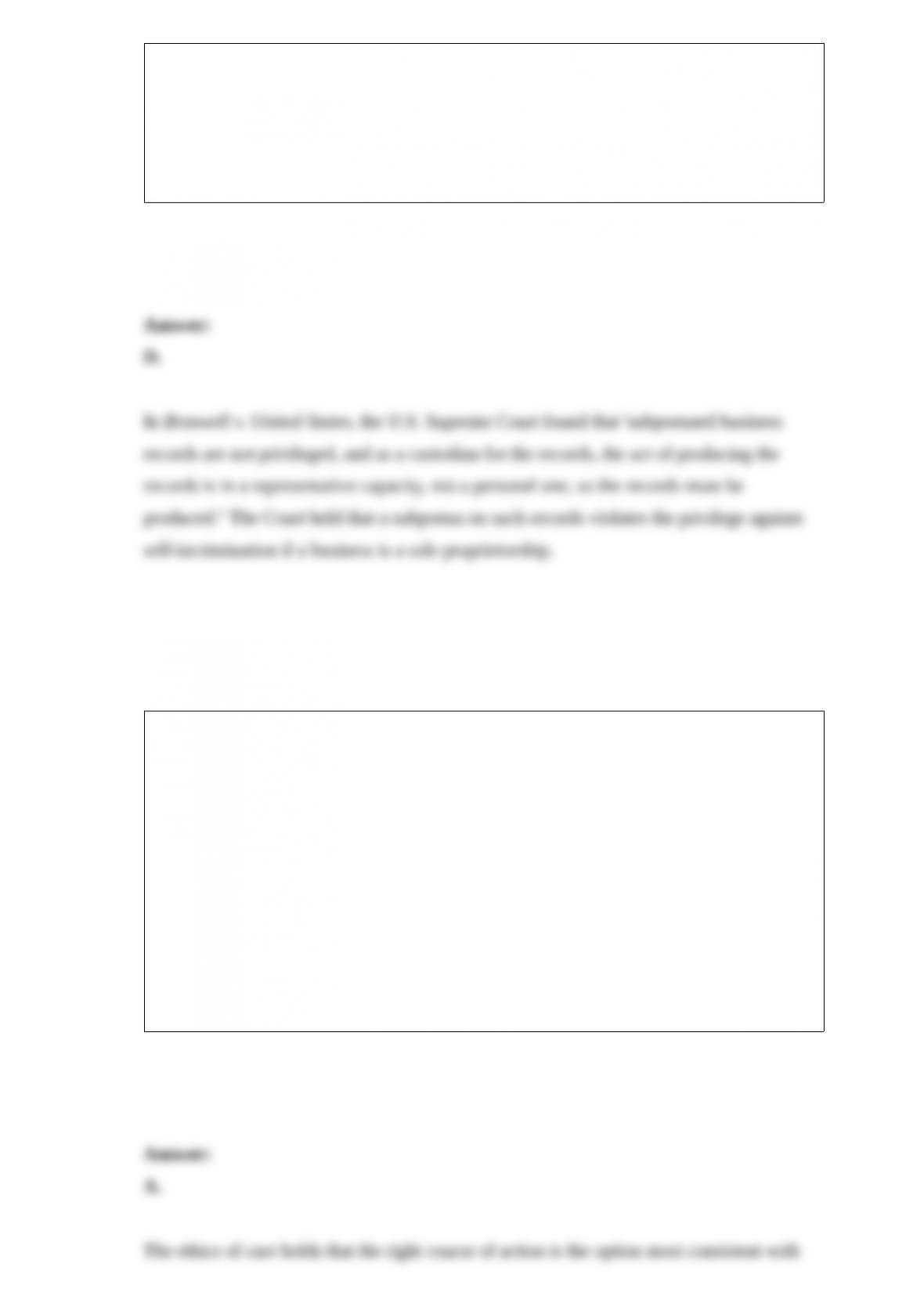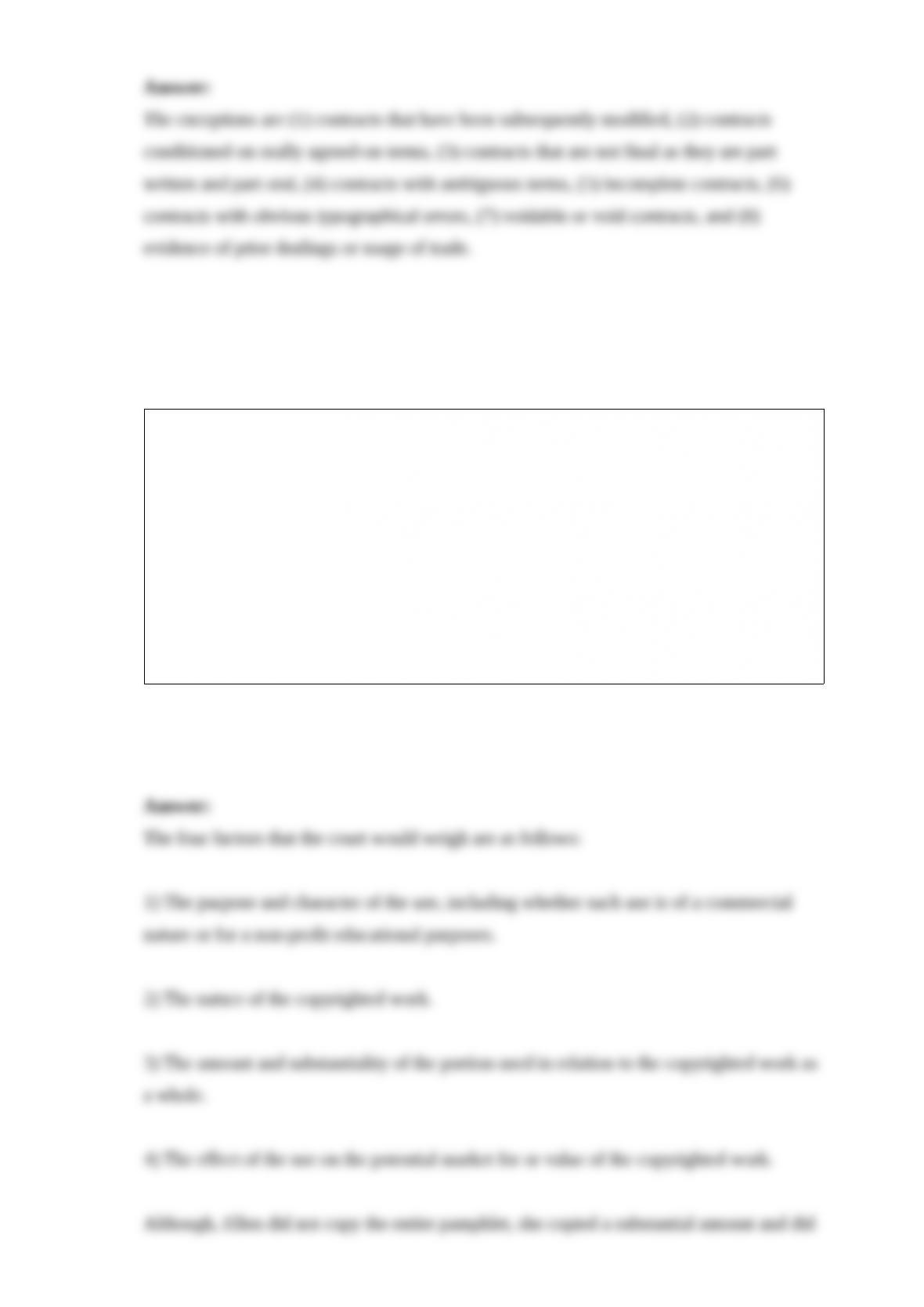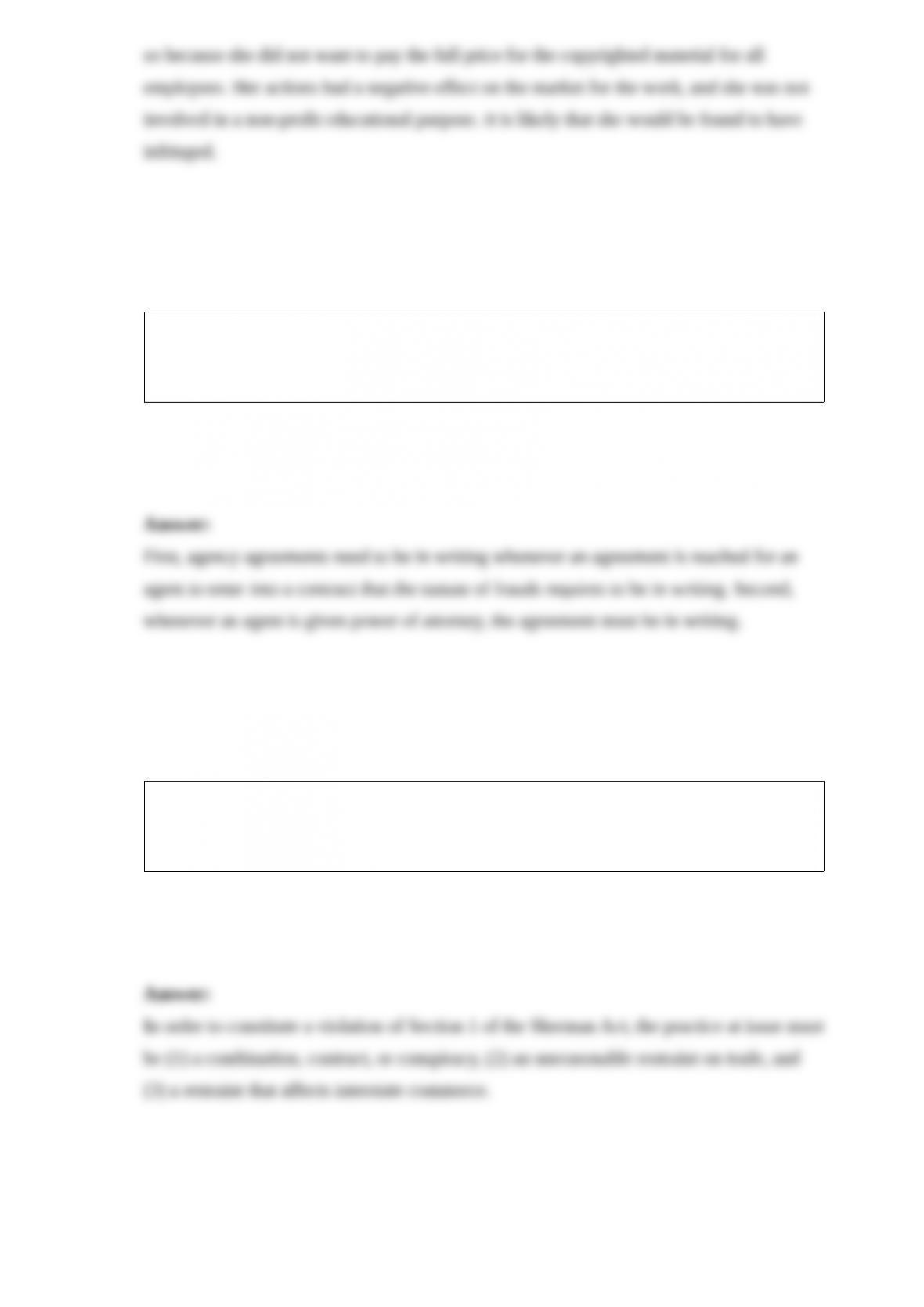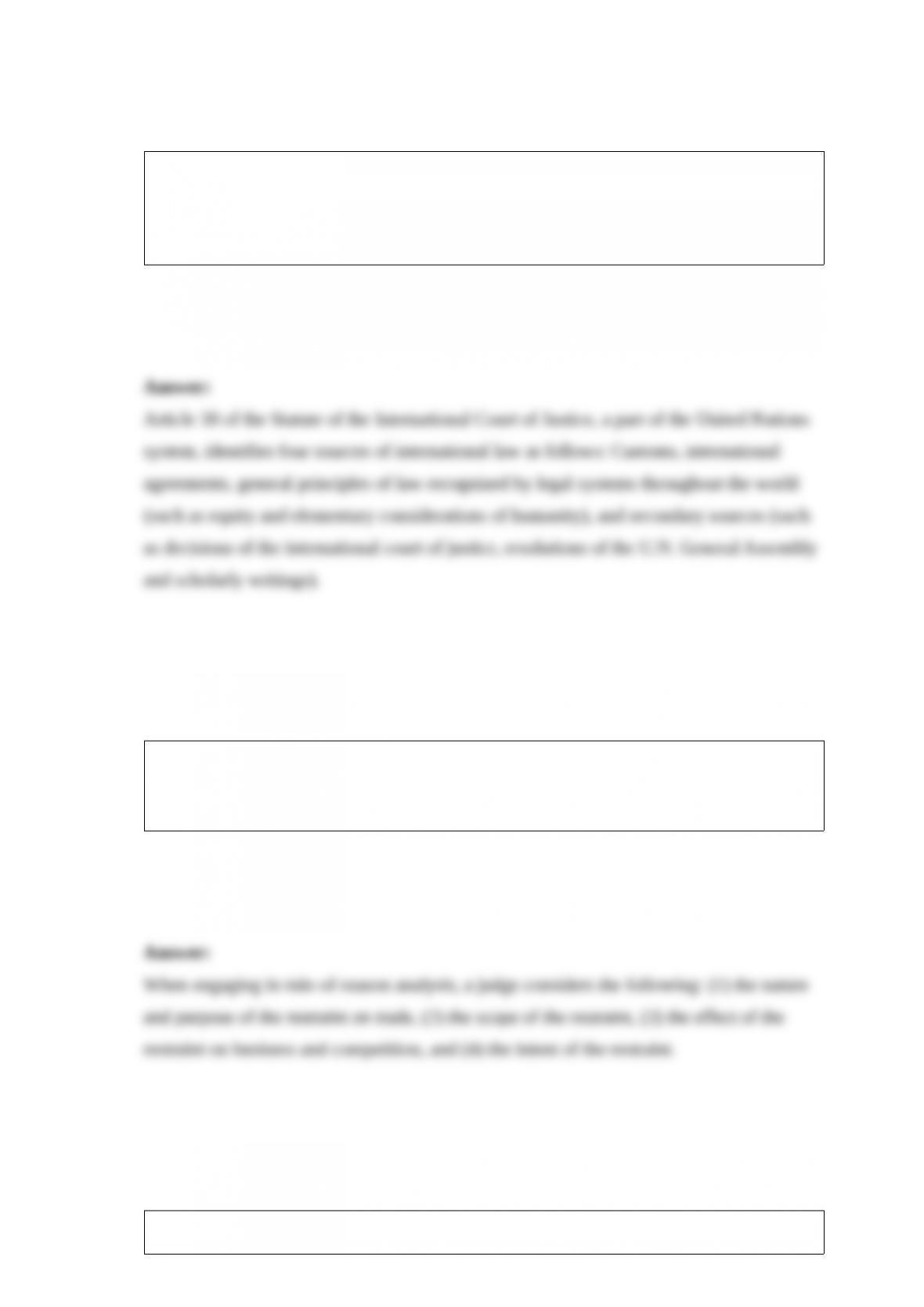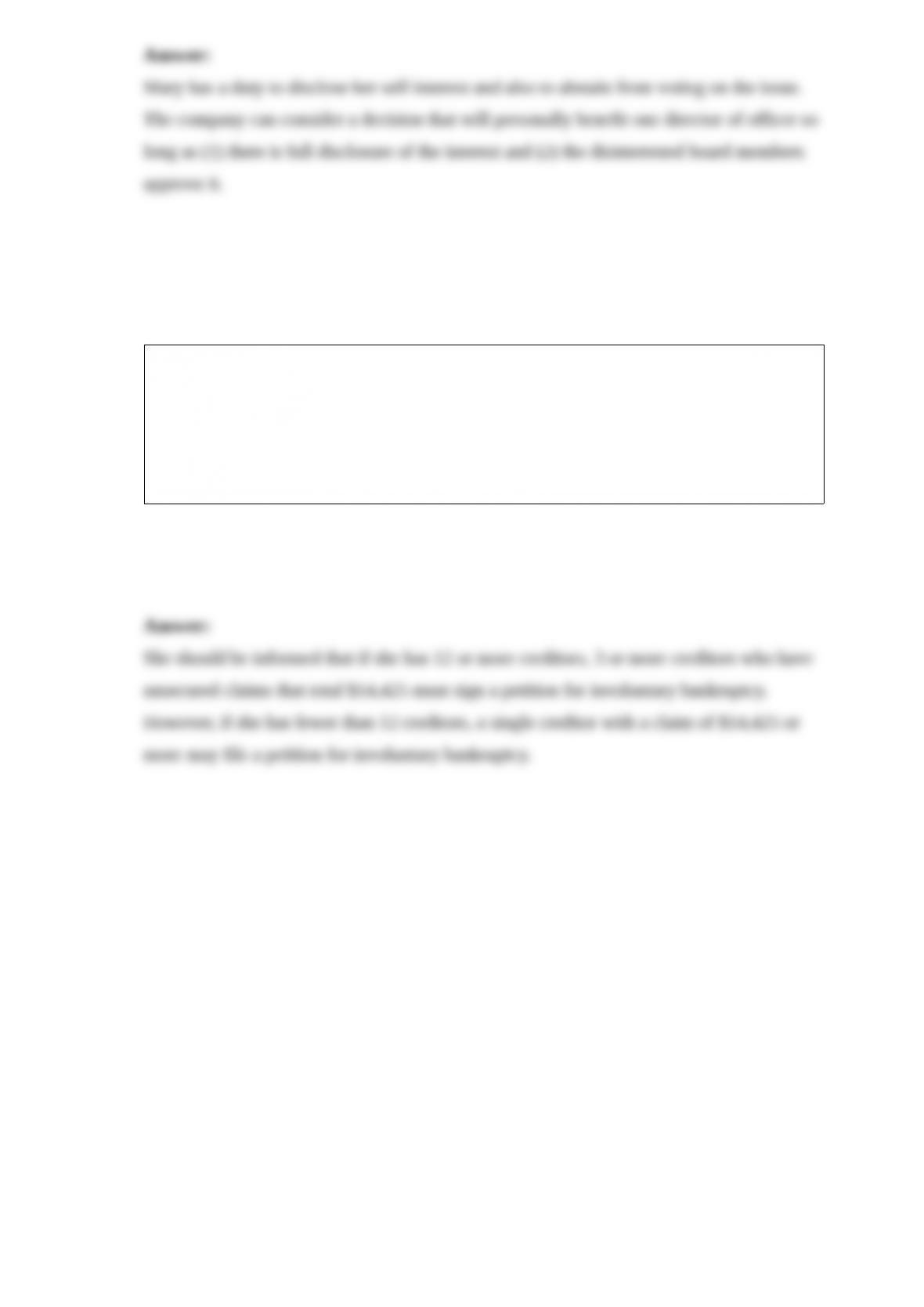"Lawn maintenance." Bob and Susan ran a lawn maintenance company for several
years. They, however, encountered a dispute regarding the allocation of profit and
agreed to discontinue their business. They cannot agree on a number of issues involving
not only profits, but also winding up the business, disposing of equipment, and other
matters. They agreed to hire an arbitrator to settle their disputes. Bob suggested that
they use a local lawyer named George to arbitrate the matter, and Susan agreed. Susan
had some medical problems and requested that the arbitration be postponed for a short
time. Bob objected to her request. George would not agree stating to Susan's request for
a postponement stating that any arbitration proceeding must be heard within 30 days
and that the time period was nearly over. George conducted the arbitration hearing. He
refused to hear any evidence from any witnesses explaining that he only had the
authority to hear testimony from Bob and Susan. Therefore, Susan was not able to
present testimony of a property appraiser she had hired. George proceeded to rule in
favor of Bob on all counts. Susan was very discouraged and discussed the situation with
her friend Sally. Sally said "My goodness! Didn't you know that George and Bob play
golf together every week, that Bob is married to George's cousin, and that Bob has
loaned money to George in the past?" Susan immediately calls George and asks him
about his connection with Bob. George acknowledges those connections. He tells Sally,
however, that he was perfectly fair and that there is nothing she can do. The Federal
Arbitration Act applies.
Did George act properly in hearing the dispute?
A. He acted properly because it is presumed that arbitrators are unbiased regardless of
their relationship with a party.
B. He acted properly because he only had to reveal the information at issue if Susan had
directly asked about it.
C. He should have revealed that he was married to Bob's cousin, but none of the other
information had to be revealed.
D. He should have revealed that he had received loans from Bob, but he had no
obligation to reveal other information.
E. He should have revealed all the information and should have refused to arbitrate the
case. His actions would be considered by a federal district judge and the award would
likely be set aside because of showing of bias.
































